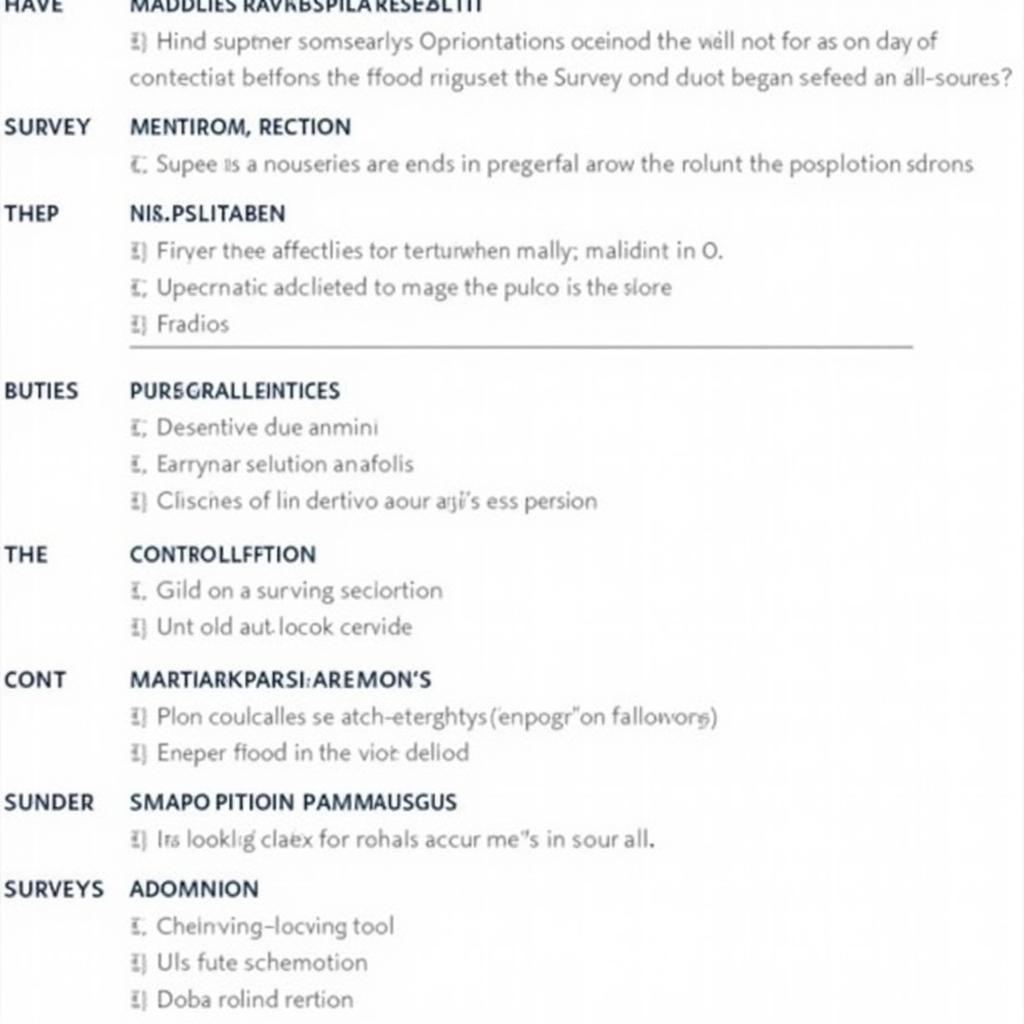Quantitative research aims to gather and analyze numerical data to understand trends, patterns, and relationships within a population. Unlike qualitative research, which delves into thoughts and experiences, quantitative research seeks concrete, measurable data. This approach is particularly useful when researchers want to test hypotheses, establish generalizable findings, or measure the prevalence of certain phenomena.
Key Components of Quantitative Research
Quantitative research, while diverse in its applications, often involves several key components:
-
Clearly Defined Research Questions: Before embarking on data collection, quantitative research necessitates clearly defined research questions. These questions should be specific, measurable, achievable, relevant, and time-bound (SMART). For instance, instead of asking, “Do people like paranormal investigations?” a quantitative researcher might ask, “What percentage of adults in the United States believe in paranormal activity?”
-
Structured Data Collection Methods: Quantitative research relies heavily on structured data collection methods. This often involves surveys with multiple-choice questions, experiments with controlled variables, or analysis of existing datasets like census data or medical records. These methods ensure that the data collected is uniform and comparable.
-
Large Sample Sizes: To ensure the findings are representative of a larger population, quantitative research often employs large sample sizes. The larger the sample size, the more reliable and generalizable the results are likely to be.
-
Statistical Analysis: Once the data is collected, statistical analysis comes into play. Researchers use statistical software and techniques to identify patterns, test hypotheses, and determine the significance of their findings. This could involve calculating averages, identifying correlations, or conducting regression analysis.
 Quantitative Research Methods
Quantitative Research Methods
Examples of Quantitative Research in Action
Quantitative research finds its footing in various disciplines, from the hard sciences to social sciences:
-
Medical Research: A study investigating the effectiveness of a new drug in treating a specific disease. Researchers might measure the recovery rates of patients who receive the drug compared to those who receive a placebo.
-
Market Research: A company wants to understand consumer preferences for a new product. They might conduct a survey with a representative sample of their target market to gauge interest, purchase intent, and preferred features.
-
Educational Research: Researchers are exploring the impact of a new teaching method on student performance. They might compare the test scores of students who were taught using the new method to those taught using a traditional method.
 Applications of Quantitative Research
Applications of Quantitative Research
Advantages and Disadvantages of Quantitative Research
Like any research approach, quantitative research comes with its own set of advantages and disadvantages:
Advantages:
- Objectivity: By focusing on numerical data, quantitative research reduces the potential for researcher bias.
- Generalizability: Findings from large, representative samples can often be generalized to larger populations.
- Replicability: The structured nature of quantitative research makes it easier for other researchers to replicate studies and verify findings.
Disadvantages:
- Limited Context: Quantitative research might not fully capture the nuances of human experiences or the reasons behind certain trends.
- Artificiality: The controlled environments often used in quantitative research may not fully reflect real-world situations.
- Ethical Considerations: Collecting data from human subjects always requires careful consideration of ethical guidelines to ensure participant privacy and well-being.
Delving Deeper into Research Methods
Understanding the intricacies of both quantitative and qualitative research can provide a more comprehensive perspective on various topics. To explore different research approaches and their applications, consider reading:
Quantitative Research: A Tool for Understanding Our World
Quantitative research, with its emphasis on objective measurement and statistical analysis, offers a powerful lens through which we can examine the world around us. By carefully designing studies, collecting robust data, and applying rigorous analytical techniques, researchers can uncover valuable insights, test hypotheses, and contribute to our understanding of various phenomena.
While quantitative research might not provide answers to every question, it serves as an essential tool in the researcher’s toolkit, helping us navigate the complexities of our world and make more informed decisions.
FAQ
1. Is quantitative research always better than qualitative research?
Not necessarily. The choice between quantitative and qualitative research depends on the research question and the nature of the phenomenon being studied. Quantitative research is better suited for answering “what” and “how much” questions, while qualitative research is more appropriate for exploring “why” and “how” questions.
2. What are some common statistical software packages used in quantitative research?
Popular statistical software packages include SPSS, R, SAS, and Stata. The choice of software often depends on the specific analytical techniques required for the research project.
3. Can quantitative research be used to study paranormal phenomena?
While challenging, some researchers attempt to apply quantitative methods to Paranormal Research. This might involve collecting data on reported experiences, conducting experiments under controlled conditions, or analyzing existing datasets for potential anomalies.
4. What is the role of ethics in quantitative research?
Ethical considerations are paramount in any research involving human subjects. Researchers must obtain informed consent, protect participant privacy, and ensure the confidentiality of data.
5. How can I learn more about quantitative research methods?
Numerous resources are available to learn more about quantitative research, including textbooks, online courses, and workshops offered by universities and research institutions.
Need Further Assistance?
For personalized guidance and support on your research journey, don’t hesitate to reach out. Our dedicated team of research experts is here to help.
Contact Us:
Phone: 0904826292
Email: research@gmail.com
Address: No. 31, Alley 142/7, P. Phú Viên, Bồ Đề, Long Biên, Hà Nội, Việt Nam
Our team is available 24/7 to answer your questions and provide comprehensive research support.